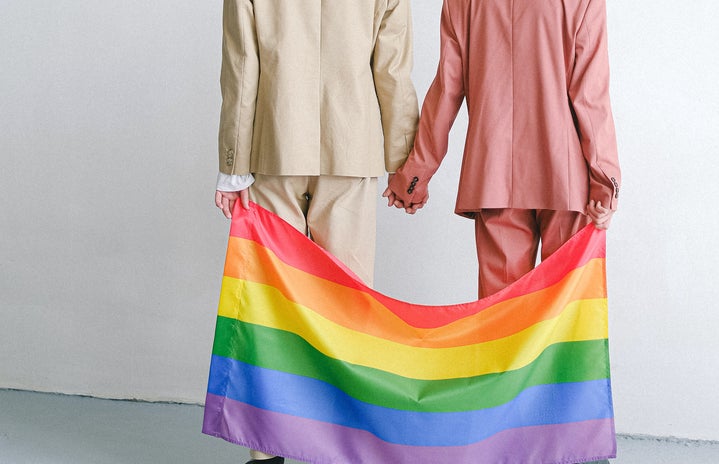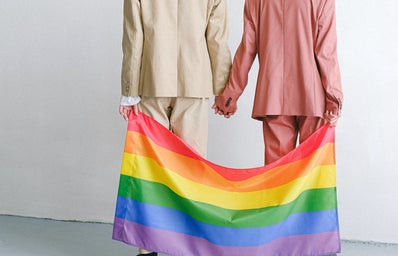The LBTQIA+ community has and continues to be a marginalized group within our modern society. Historically, the community has faced outward discrimination solely due to their sexual orientation. As time passes, we as a society only examine the progress that has been made in terms of (minor) legal recognition of our LGBTQIA+ neighbors to purposefully ignore the reality of new harmful stereotypes that are being created by this new-age so-called “acceptance”. The people within our society that do not support the LGBTQIA+ community and reluctantly tolerate their more open presence have created a new kind of discrimination that can oftentimes go unnoticed by the people that is does not affect directly (aka heteronormative individuals). The people that we find to be more reluctant to accepting progress and adjusting to a culture that they may not have grown up around are coping with being around more openly queer people by using a language of stereotypes that are just as harmful to the queer community as blatant homophobia. This language involves descriptive stereotypes that confines members of the queer community to specific characteristics regarding the way they interact, dress, and present themselves towards others. “Identifying as LGBTQIA+ is more than how someone presents themselves. Gender identity and/or sexual orientation is not a physical characteristic nor is it something that is or should be easily identifiable.”
People of the LGBTQIA+ community express themselves in a variety of ways just as heterosexual people do. Although there is a weird apprehensive obsession with the way that queer people dress and present themselves, they are quite literally just dressing in whatever way they personally choose- they are NOT dressing in a way to meet the presumptions of some homophobe’s stereotypical expectations. People of any community should not be expected to dress or act in any certain way; this is just a harmful assumption that further oppresses them. “Saying that ‘you had no idea’ or ‘you didn’t know’ someone identified as LGBT in response to them coming out to you is a poor excuse for not previously challenging LGBT stereotypes.” These stereotypes and presumptions continue to distinguish people of the LGBTQIA+ community from the rest of the population when in reality we are all just the same. Thankfully, there are ways to combat this kind of derogatory discrimination; here are some steps that you can take:
· Affirm your friends that are a part of the LGBTQIA+ community that no matter how they feel, act, or present themselves, their sexuality/ intersectional identities are valid.
· Stay mindful of the language that you use and educate yourself on types of language that can be harmful to some people; pro tip: if you are not sure do not say it.
· Speak out against stereotypical and offensive statements about LGBTQIA+ people and issues· Support queer-owned businesses, especially those owned by queer people of color


